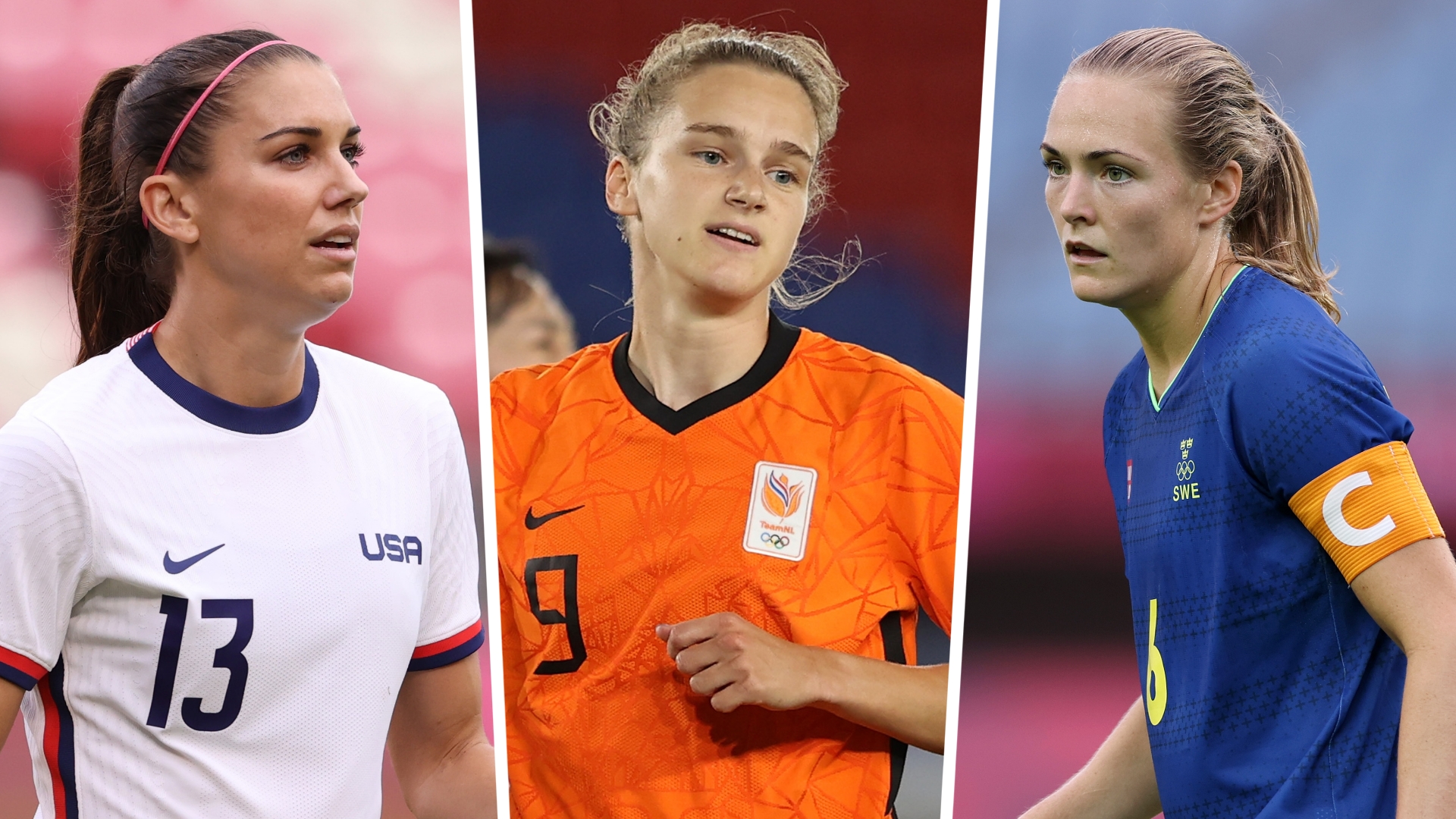
Tokyo 2020 Power Rankings: USWNT third as Olympic knockouts begin
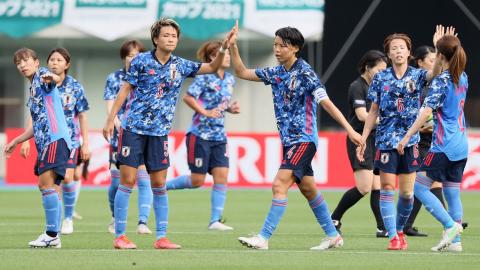
It has been difficult to know where Japan are at because their friendlies have come against lower-tier opposition. The Nadeshiko scored 27 goals in four friendlies against Paraguay, Panama, Ukraine and Mexico, the latter scoring the only goal they conceded in that time.
July’s game with Australia didn’t make things massively clearer. A 1-0 win, courtesy of a Mana Iwabuchi penalty, showed glimpses of that wonderful free-flowing football, but not to the same devastating effect against a tougher opponent.
Nonetheless, the team have the advantage of home soil, buckets of confidence and a team with strong identity and chemistry. In Iwabuchi, they have a genuine game-changer, while Saki Kumagai offers world-class quality in defence.
Their opponents in the first stage could certainly be tougher, too. Great Britain and Canada both have rosters packed with quality, but there are uncertainties as to how they will perform, while Chile will be the group's big underdog.
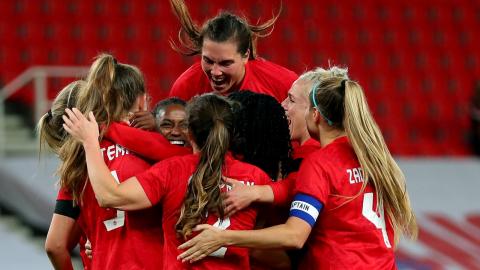
One of Canada’s biggest problems as of late has been scoring goals, making Bev Priestman’s decision to name PSG forward Jordyn Huitema as only a reserve, before the rosters were expanded to 22 players to include her in the squad anyway, quite a surprise.
Goalless draws with Brazil and the Czech Republic in June highlighted their problems, despite Christine Sinclair, football’s all-time topscorer at international level, being back from injury.
There is plenty of talent throughout the roster, plenty of experience and a strong defence, but they will need to be more creative and more of a force going forward to repeat, or top, the success of winning bronze medals in 2012 and 2016.
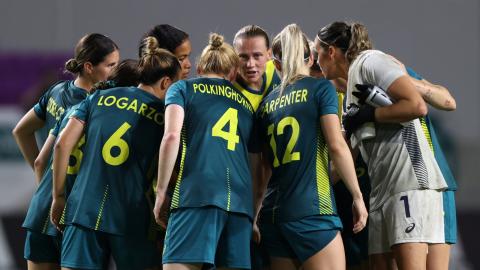
Few teams suffered as much as Australia during the Covid-19 pandemic.
After the exciting managerial appointment of former U.S. women’s national team assistant Tony Gustvasson in September, it wouldn’t be until April that the Matildas took to the field.
Those first two games under the Swede’s charge were worrying, shipping five goals to Germany and then the Netherlands, but Australia were missing a number of key players.
Games against Denmark and Sweden in June were much more promising, particularly defensively, as was a tight 1-0 defeat to Japan, the only goal being a penalty.
While a medal might be a stretch given the team’s far-from-ideal preparation, Australia have reasons to be hopeful.
They are clearly gelling and have a genuine world-class player in their ranks, in Sam Kerr. She is not the only match-winner in an excellent squad, either.
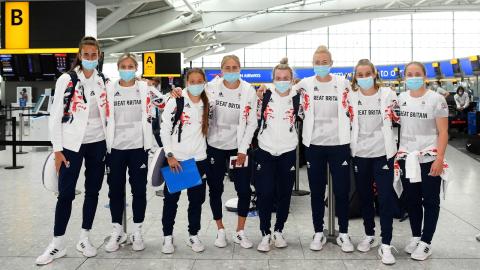
There is no denying the talent throughout what is just Great Britain’s second-ever women’s football team.
However, there is little indication of how the team will perform as a group, with a July fixture against Zambia cancelled. They did take on New Zealand in a friendly just a week before the Games, winning 3-0, but that was the Ferns' first game in almost 500 days.
The time the group has spent together since mid-June will be absolutely crucial and Riise will hope it has helped them gel despite only being able to play one game, in order to live up to the quality this team has on paper.
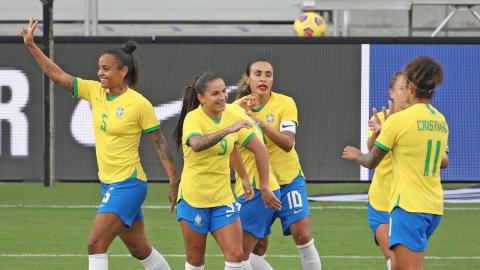
Brazil are another nation that are tough to predict.
There's no denying the quality throughout their squad, be it Marta, widely regarded as the game's greatest ever player, or Debinha, who has established herself as one of the world's best in recent years, ranking at No.9 in Goal 50 last year.
However, they fell to France in the round of 16 in the 2019 World Cup and didn't trouble the USWNT much at this year's SheBelieves Cup, in a 2-0 defeat.
They are certainly in the upper echelons when it comes to ranking the contenders for an Olympic medal, but whether they can put together a genuine challenge for gold is up for debate.
With Pia Sundhage's appointment having helped give them good defensive structure, resulting in clean sheets in each of their last three games, they will need those aforementioned stars to shine and make them a serious attacking force in order to trouble the favourites.
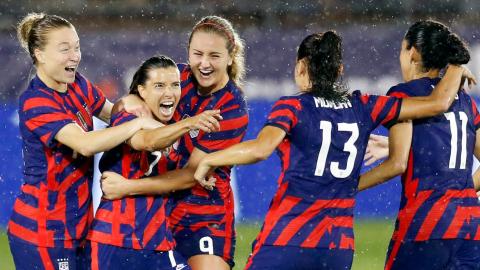
There are very few people who would not say that the USWNT are the favourites to win gold this summer.
World Cup winners in 2015 and 2019, the world-class quality throughout the squad is undeniable, their winning mentality is incredible and there may even be a little extra motivation in those who were involved in the Olympics in 2016, when Sweden beat them on penalties in the quarter-finals to cause perhaps the biggest shock in the team's history.
But there are possible downfalls in this team, even if they are rather small concerns.
The average age of the squad is over 29 years old, which could be a risk given the short turnaround between games and the hot climate in Japan. Julie Ertz, often cited as the most important player in their team, is carrying an injury too.
Nonetheless, it still feels like it will still take something extraordinary to stop the 2012 gold medallists from standing on the top of that podium again.
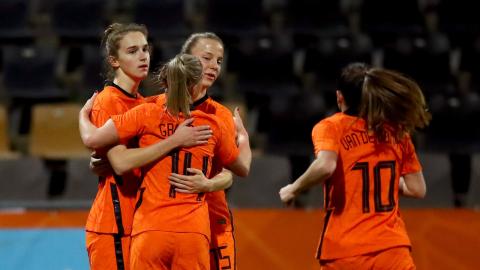
The reigning European champions and finalists at the 2019 World Cup, the Netherlands have lots of credentials that make them contenders for the gold medal this summer.
They have a squad stacked with talent: Vivianne Miedema, the Women's Super League's all-time top goalscorer at just 24 years of age; Lieke Martens, one of the stars of the show in Barcelona's UEFA Women's Champions League final win; and Danielle van de Donk, the versatile, fleet-footed midfielder who just signed for seven-time European champions Lyon.
The only thing they are lacking is genuine evidence that they can beat the favourites, the USWNT, should they indeed meet.
Head coach Sarina Wiegman had a promising game plan in the World Cup final, but her side lost 2-0 in the end. As she prepares to leave for the England job after this tournament, her final task in charge of her home nation might well be to mastermind an even more effective one in Tokyo.
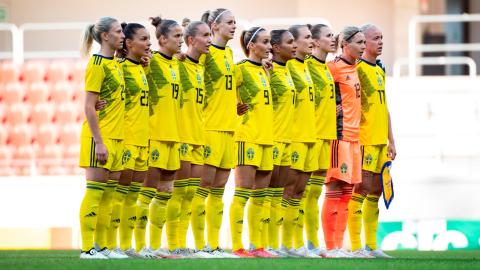
Silver medallists at the last Games, Sweden come into this tournament with the reputation of being able to cause an upset.
They beat the U.S. women's national team in the quarter-finals in Brazil in 2016 and then beat Germany at the same stage of the 2019 Women's World Cup. Just this year, they almost beat the USWNT again, only for their friendly meeting in April to end in a draw late on.
This team is tactically astute and very capable defensively, with the ability to exploit opponents at set pieces. But they also have lots of flair in their ranks, be it from Real Madrid's Kosovare Asllani, new Barcelona signing Fridolina Rolfo or Stina Blackstenius, who has 11 goals in 12 league games for BK Hacken so far this season.
With a nice mix of youth and experience in the squad too – goalkeeper Hedvig Lindahl their oldest player at 38 years old, with Hanna Bennison, Goal's 2021 NXGN winner, the youngest at 18 – Sweden will be a serious thorn in the side of the perceived 'bigger nations'.
